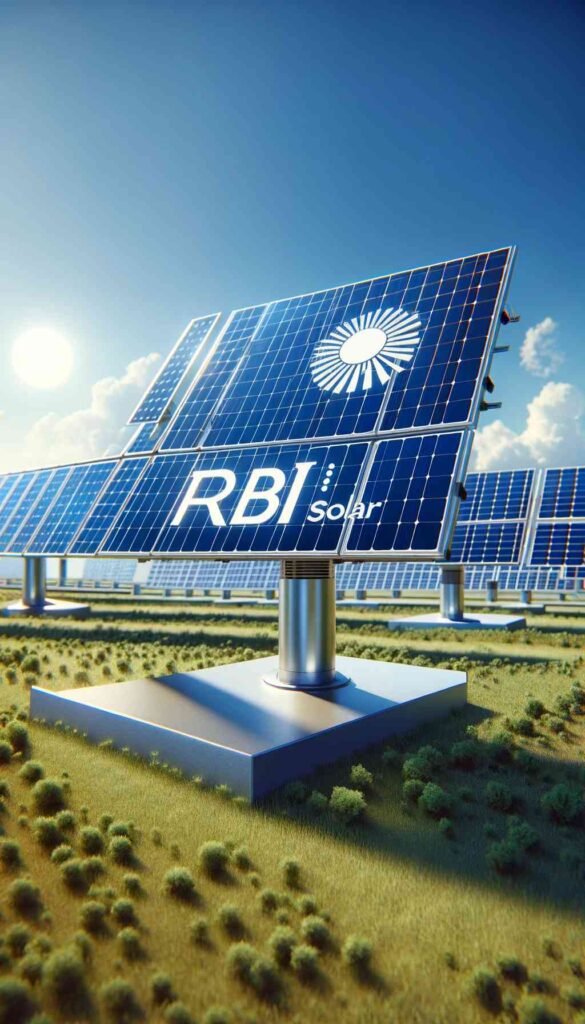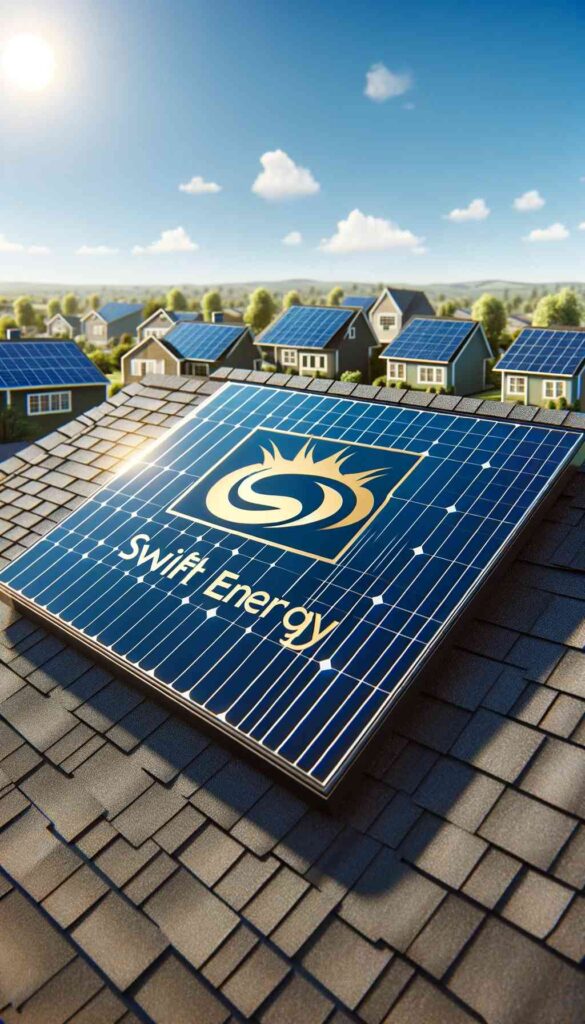
Key Takeaways
- Cash purchases mean immediate ownership and long-term savings, but require a significant upfront investment.
- Solar loans offer a variety of terms and rates, making solar panels accessible without upfront costs.
- Leasing or entering into a Power Purchase Agreement (PPA) allows you to go solar with no money down.
- Federal and state incentives can significantly reduce the overall cost of solar installation.
- Choosing the right solar financing option can maximize your return on investment and increase your home’s value.
Your Guide to Illuminating Solar Financing
Starting your journey into solar financing might seem daunting, but understanding your options can make all the difference. Solar financing provides various ways to fund your solar panel installation, making it easier for homeowners and businesses to adopt sustainable energy. Whether you have cash on hand or prefer to spread out payments, there’s a solution that fits. Let’s shed some light on the basics to help you make an informed decision.
Grasping the Solar Financing Basics
Think of solar financing as a toolbox—each tool serves a specific purpose. You’ve got cash purchases, loans, leases, Power Purchase Agreements (PPAs), and government incentives. Each option has its merits, and the right choice depends on your financial situation and energy needs.
Remember that solar investment isn’t just about the initial cost. It’s about the potential savings on your energy bills and the increase in your property value over time. So, let’s explore the financial paths you can take to solar enlightenment.
Finding the Right Fit: Options Detailed
Choosing the right solar financing option can feel like a big decision, but it’s all about finding what works best for you. Think about your finances, credit score, and long-term energy goals. If you like the idea of owning your solar system and taking advantage of federal tax credits and incentives, solar loans could be your best bet. On the other hand, if you prefer to keep upfront costs low and enjoy hassle-free maintenance, leases and PPAs might be perfect since the third-party owner handles all the upkeep. Plus, don’t forget to check out special financing programs and incentives from states and utilities—they can help reduce costs even more. By weighing all these options, you’ll find the perfect fit that matches your budget and sustainability goals.
Cash Purchase: The Straightforward Path
Buying your solar system outright with cash is the most straightforward route. It’s like purchasing a car without a loan—you pay the full price upfront, and the vehicle is yours, free and clear. The same goes for solar panels.
The Cash Advantage: Immediate Ownership
When you pay in cash, you own the solar panels from day one. This means you’re eligible for all the incentives and rebates without the complications that can come with other financing methods. Plus, you’ll save on interest and financing fees that would add to the total cost over time.
However, not everyone has the cash to cover the upfront cost, which can be substantial. If that’s the case, don’t fret—there are other ways to join the solar revolution.
Saving with Solar: Analyzing Long-Term Benefits
While paying cash requires a larger initial investment, it pays off in the long run. You’ll see significant savings on your electricity bills, and because solar panels have a lifespan of 25-30 years, those savings can add up to a substantial amount. Also, owning your system increases your home’s resale value—a win-win situation.

Solar Loans: Borrowing Solar Sunshine
If paying cash isn’t an option, solar loans are a popular alternative. They allow you to finance the purchase and installation of your solar panels over time. Think of it as taking out a mortgage for your energy independence.
With solar loans, you still own your system and can take advantage of all the incentives and rebates. And just like with a cash purchase, you’ll see your energy bills decrease, which helps offset the loan payments.
Solar Loans Decoded: Types and Terms
When it comes to solar loans, you’ve got options. Some loans are secured by your home, while others are unsecured personal loans. The terms and interest rates will vary based on the lender and your creditworthiness. Here’s the deal:
Secured loans might require a lien on your home but come with the perk of lower interest rates. Unsecured loans offer more flexibility but at the cost of higher rates. The key is to shop around and compare offers from different lenders to find the best deal. Terms can range from 5 to 25 years, allowing you to choose a payment schedule that fits your budget.
Leases and PPAs: Solar Without Upfront Costs
Let’s say you’re eager to go solar, but the upfront cost is a hurdle. This is where leases and Power Purchase Agreements (PPAs) shine. They’re akin to renting a home—you enjoy the benefits without owning the hardware.
The Leasing Lowdown: Committing Without Buying
With a solar lease, you pay a fixed monthly fee to ‘rent’ the solar energy system. The leasing company owns the panels, and in exchange for the rent, you get to use all the electricity they produce. It’s a hassle-free option, as the leasing company usually handles maintenance and repairs. However, because you don’t own the system, you won’t qualify for tax credits or incentives.
Power Purchase Agreements: Pay-As-You-Go Energy
PPAs are similar to leases, but instead of paying for the equipment, you pay for the power it generates, often at a lower rate than your utility company. It’s a pay-as-you-go approach. You get the benefits of solar power, and the PPA provider takes care of the system. The catch? Like leasing, PPAs don’t afford you the tax credits since you’re not the owner.

Government Incentives: The Helping Hand
One of the biggest perks of going solar is the range of government incentives available to reduce your costs. These incentives can make solar more affordable and speed up the return on your investment.
Understanding Federal Solar Investment Tax Credit (ITC)
The Federal ITC is a cornerstone of solar incentives. As of my latest information, it allows homeowners to deduct 26% of the cost of installing a solar energy system from their federal taxes. This incentive won’t last forever, though—it’s set to decrease over time, making it wise to act sooner rather than later.
Remember, to benefit from the ITC, you must own your solar system, either through cash or financing. If you lease or have a PPA, you’re not eligible. It’s a powerful incentive that underscores the financial savvy of owning your solar setup.
State and Local Solar Incentives: Maximizing Savings
Each state has its own set of incentives, designed to make solar more accessible. These might include:
- State Tax Credits: Similar to the federal ITC, these reduce your state tax bill.
- Rebates: Direct cash back that reduces the upfront cost of your solar system.
- Performance-Based Incentives: Payments based on the amount of electricity your solar panels produce.
- Property Tax Exemptions: Solar installations can increase home value, but some states won’t hike up your property taxes because of it.
The combination of federal and state incentives can slash the cost of going solar, making it a financially attractive option for many homeowners.

Solar Financing Companies: Guided Assistance
If navigating the sea of solar financing options seems daunting, solar financing companies can be your compass. They specialize in making solar accessible, offering a range of services to help homeowners like you find the best financing solution.
Exploring Third-Party Solar Financing Companies
These companies offer expertise in the various financing options available, and they often have partnerships with lenders to provide competitive rates. They can also assist with the paperwork and applications for incentives and rebates, streamlining the process for you.
Key Services and Products Offered by Solar Financiers
Solar financing companies provide a range of services to help you navigate your options. They offer consultation services to assess your specific solar financing needs and can connect you with lenders for both secured and unsecured solar loans. For those who prefer not to purchase a system outright, they facilitate lease and Power Purchase Agreement (PPA) arrangements. These companies also assist you in claiming federal and state solar incentives, making the process smoother and more accessible. They are a valuable resource, especially for those new to solar energy who may feel uncertain about where to begin.
Maximizing Solar ROI: Tips and Tricks
Getting the most out of your solar investment is key. After all, solar isn’t just about being eco-friendly—it’s about being economically smart too. Here’s how to ensure you’re getting the best return on investment (ROI) from your solar panels.
Calculating Your Solar Return on Investment
To calculate your solar return on investment (ROI), start by considering the total cost of your solar system after factoring in any incentives and rebates. Next, look at your average monthly savings on electricity bills and take into account the expected lifespan of your solar panels, which is typically 25 to 30 years. By comparing the cost savings over time to the initial investment, you can determine how long it will take to break even and begin profiting from your solar system.
Maintenance and Efficiency: Enhancing Solar Performance
Regular maintenance and efficiency checks are important for enhancing solar performance and ensuring your solar power system operates at its best for years to come.
Keep your solar panels clean and in good repair to ensure they’re working at peak efficiency. A well-maintained system generates more electricity, which translates to bigger savings and a quicker ROI. Consider the following tips:
- Regularly clean your solar panels to remove debris and dirt that can block sunlight.
- Have your system inspected by a professional every few years to catch any issues early.
- Monitor your system’s performance to ensure it’s producing the expected amount of power.
By following these steps, you’ll keep your solar panels shining bright for years to come.
Evaluating Your Home’s Solar Potential
Before you leap into solar financing, it’s crucial to assess your home’s solar potential. This involves considering factors like your roof’s orientation, shading from trees or buildings, and local climate conditions. A south-facing roof with little to no shade is ideal, but there are options for less-than-perfect setups too.
Consulting with a professional solar installer can provide you with a detailed analysis. They can estimate the amount of energy your system could generate and help you understand the potential savings. Remember, the more energy you can produce, the greater the financial benefits.
Connecting with Trusted Solar Providers
Finding the right solar provider is like choosing a partner for a long-term journey. You want someone reliable, experienced, and transparent. Start by asking for recommendations from friends or family who have gone solar, or look for providers with strong customer reviews and a solid track record.
Once you’ve narrowed down your list, get quotes from multiple providers. This will give you a clearer picture of the costs and services offered. Be sure to ask about their experience with various financing options and their assistance with incentive applications.

Frequently Asked Questions
Which Solar Financing Option Offers the Best Return on Investment?
The best return on investment often comes from purchasing your solar system outright, either with cash or through a solar loan. This way, you benefit from all available incentives and rebates and avoid paying additional leasing fees or higher PPA rates over time.
However, if upfront costs are prohibitive, a lease or PPA can still offer savings on your energy bills without the need for a large initial investment. The key is to consider your long-term financial goals and choose the option that aligns with them.
How Do Solar Leases Differ from Power Purchase Agreements?
Solar leases and Power Purchase Agreements (PPAs) both let you use solar energy without purchasing the system, but they differ in payment structure. With a lease, you pay a fixed monthly fee regardless of the energy produced, while in a PPA, you pay a set rate based on the actual energy generated by the system.
Can I Still Receive Solar Incentives if I Lease My Panels?
No, if you lease your solar panels or enter into a PPA, you are not eligible for solar incentives like the Federal ITC. These benefits go to the owner of the system, which in the case of a lease or PPA, is the solar company.
What Should I Look for When Comparing Solar Financing Companies?
When comparing solar financing companies, focus on:
- Their expertise and experience in the solar industry.
- The range of financing options they offer.
- Customer reviews and satisfaction ratings.
- Transparency in their fees and charges.
- Support in claiming incentives and navigating paperwork.
It’s important to choose a company that not only offers competitive rates but also provides valuable support throughout the solar installation process.
How Does Solar Installation Impact My Home’s Value?
Installing solar panels is a great way to increase your home’s value! Studies show that homes with solar energy systems tend to sell for more than those without. Buyers love the energy savings and eco-friendly perks that come with solar power, making your home even more attractive. Plus, in many areas, solar installations are exempt from property tax assessments, so your property taxes might not go up despite the added value. It’s a smart investment that benefits you now and in the future, whether you plan to stay in your home or sell it down the line.


